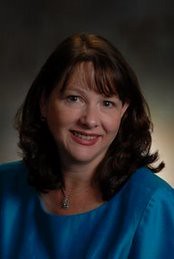Earlier, I told you about my misadventures at the Harriette Austin Writers Conference last weekend. Today I'll give you a slightly more thoughtful report--something that might actually be of use to you.
For me, the highlight was Ralph McInerny's keynote address. McInerny is an academic, a professor at Notre Dame, and a novel writer. In fact, he writes the Father Dowling mystery series. He presented a talk called "In Defense of Fiction," and he touched on a number of things that have been on my mind of late. Particularly, he asked the question, "Why are some books considered literature, and some not?"
I've been asking myself this question lately, partly as I try to figure out my own writing--and just what exactly I'm trying to accomplish. I've come to the conclusion that one of the reasons my journey to publication has been so long is that I haven't had a clear idea of what I'm writing. Comments in rejection letters I've received reflect that. I've had publishers of commercial fiction tell me my work sounded "too literary." I've tried literary publishers who told me my writing is commercial. Secular publishers said my stories were too nice and traditional. Christian editors have told me my characters weren't nice, or Christian, enough. And that's before we even come to the question of genres. No matter how I try, I can't seem to make my characters play nice and do the things they're supposed to for one particular genre. They're all over the place.
So I'm making a great effort to understand the books that are already out there, and where I fit into the grand scheme of things. McInerny's question (which was originally posed by C.S. Lewis in his book, Experiment in Criticism) was therefore of great interest to me. According to McInerny, Lewis came up with the answer that "literature is anything you read again."
Doesn't Lewis have the most awesome way of getting to the heart of a complex matter? I'm sure many folks would like to argue with him, but for me, the definition was perfect. The books I consider "literature" are the ones that haunt me. That I don't forget. The ones that have created a world so vivid that I want to visit them again and again. McInerny also agreed with Lewis, and pointed out that there are worlds that are "Conradian" or "Austenian." Conrad's will haunt you; Austen's will cheer you.
That, I realized, is what I've really wanted with my writing. I want to create those places where readers want to live, those characters that people want to keep in their lives forever.
I don't ask for much, do I?
According to McInerny, it's not all black and white. All fiction can be seen on a spectrum. All fiction writers are aiming for the same thing, but to differing extents or powers. We don't all have to aim for Shakespeare's level. But at the same time, those of us writing popular fiction, he warned, may not take what we're doing seriously enough, because we're on that spectrum, too. All of us who write fiction are engaging readers, asking them to consider our philosophies, conveying some sense of what life is all about.
One more little tidbit from McInerny that I found interesting. He had a problem early in his career because he was too prolific. Can you imagine that! He said the perception was that you couldn't possibly write quickly and still turn out serious, quality works. That was one of the reasons he started to write mysteries, because he could turn out lots of books in that genre. What a change! I feel guilty, lately, because I'm constantly told that to be a serious writer I must turn out at least two or three books a year.
Thoughts, anyone?
Wednesday, July 25, 2007
Subscribe to:
Post Comments (Atom)




Lots to ponder. I like Lewis' definition of literature, too. That's very perceptive. As to being too prolific, sometimes I think some writers are more prolific than skilled. Then again, what do I know? I'm not published either. LOL
ReplyDeleteHey, Robin! I'm back in France and recovering from jet lag. So good to see you briefly last week. I loved Lewis' definition of literary fiction. I couldn't agree more--short and sweet and to the point. And like you, that is what I want my characters to do...hang around in the heads and hearts of my readers for awhile. When I get reader mail that says as much, it is like a huge hug from the Lord. As far as prolific, I am so pokey as a writer. I used to think that those who turned out one or two or three novels a year couldn't possibly be writing literature. But now I think that God has gifted each of us differently, with different lifestyles and work methods. What I have really enjoyed about meeting other Christian novelists is seeing their heart for excellence, no matter the genre. This has always been my desire for us as Christian novelist: to do our very best. I believe that excellent fiction will touch the reader's heart.
ReplyDeleteMore prolific than skilled? I sometimes think so, too, Kathleen.
ReplyDeleteWrite the story of your heart! Write what you love to read! Come up with different plot ideas until you find the one that makes you breathless with excitement!